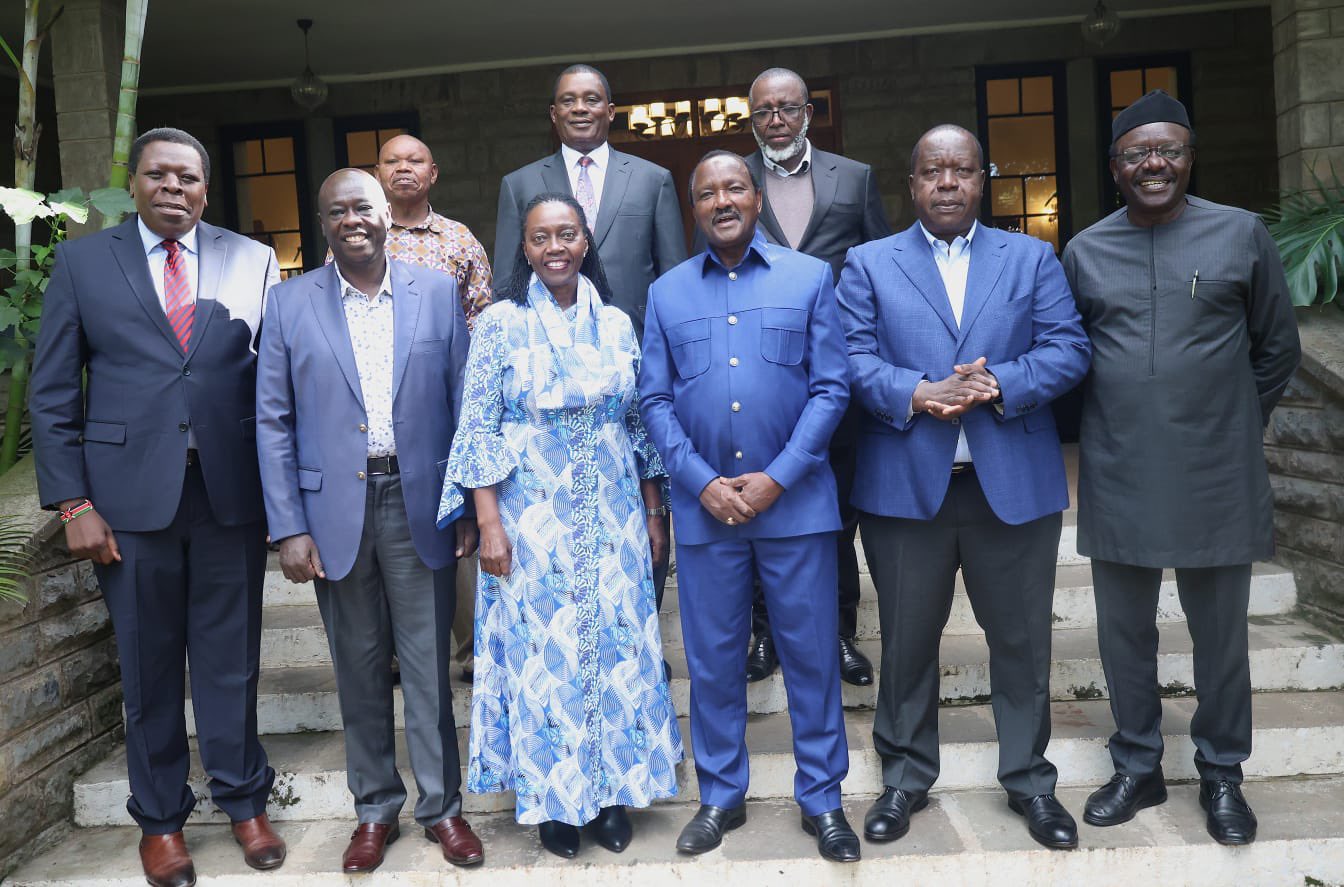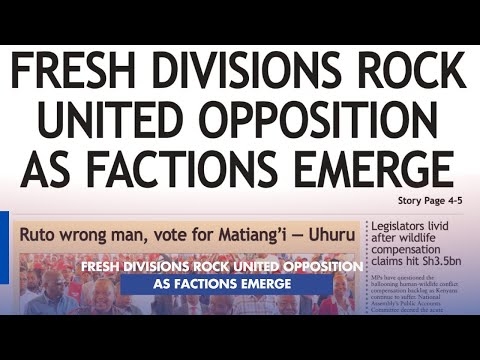

Despite repeated assurances from its leaders that their
unity is intact, recent events suggest widening rifts, divisions analysts say
could significantly weaken the opposition’s ability to mount an effective
challenge.
Former Deputy President and Democracy for Citizens Party
(DCP) leader Rigathi Gachagua has been at the forefront of defending the
coalition’s stability.
“The Opposition remains united and committed to the goal of
rescuing this country,” he said during a recent rally in Nyandarua. “We will
present one strong presidential candidate.”
But behind the declarations of unity, friction has continued
to surface.
The latest tensions erupted when DCP Deputy Leader Cleophas
Malala accused Trans Nzoia Governor George Natembeya of working with the
government to destabilise the outfit.
Malala alleged that Natembeya was collaborating with Ruto’s
administration and the National Intelligence Service to influence upcoming
by-elections in favour of pro-government candidates.
"President Ruto's government has seen that we are going
to win all these by-elections and has gone ahead to bribe one of us by the name
George Natembeya," Malala claimed during a rally in Kakamega on November
14 .
These accusations add to earlier disputes involving
DAP-Kenya leader Eugene Wamalwa, who has repeatedly denied claims that he
intends to join Ruto’s broad-based administration.
Speaking at a rally on November 12 , Wamalwa said he would
only entertain any discussions with the government if they involved the entire
opposition leadership.
However, observers argue that the ongoing public spats,
whether real or exaggerated, are playing directly into Ruto’s hands.
Political analyst Joseph Mutua said the infighting is
draining the opposition’s energy and weakening its cohesion at a critical time.
“As key figures trade accusations and form rival factions,
the energy that would typically be directed towards holding the government
accountable is instead consumed by internal battles,” Mutua said.
“For President Ruto, a fragmented opposition struggles to
coordinate messaging, mobilise supporters or mount a unified challenge to
government policies.”
Political commentator Fred Sasia, who believes the disunity
allows the President to advance his agenda with fewer political hurdles, agreed
with this assessment.
“Every fresh disagreement within the opposition strengthens
this narrative, making it easier for Ruto’s allies to argue that the country is
better off under his steady leadership,” Sasia said.
“The government gets to project itself as more stable and
organised, while the opposition appears distracted and conflicted.”
Kathiani MP Robert Mbui, however, has downplayed the
tensions.
“We, the United Opposition, are in the very early stages of
coming together to prepare for the next election,” he said.
“Disagreements are normal, it takes time to form a team.”
Nonetheless, he admitted that the biggest challenge will be
settling on a presidential flag bearer, running mate and distribution of other
key positions, given that each leader believes they have the capacity to defeat
Ruto.
Former Interior CS and Jubilee deputy party leader Dr Fred
Matiang’i has also dismissed talk of deep divisions, terming the speculation
exaggerated.
He denied claims of a fallout with Gachagua, saying that
normal political differences were being blown out of proportion.
“We chose democracy, and democracy means people express
themselves differently. People will ask questions of anyone, including me, and
that means nothing,” Matiang’i said.
Despite these assurances, analysts argue that unless the
United Opposition resolves internal tensions swiftly and firmly, Ruto will
continue to benefit from a divided rival coalition.















![[PHOTOS] Ole Ntutu’s son weds in stylish red-themed wedding](/_next/image?url=https%3A%2F%2Fcdn.radioafrica.digital%2Fimage%2F2025%2F11%2Ff0a5154e-67fd-4594-9d5d-6196bf96ed79.jpeg&w=3840&q=100)

